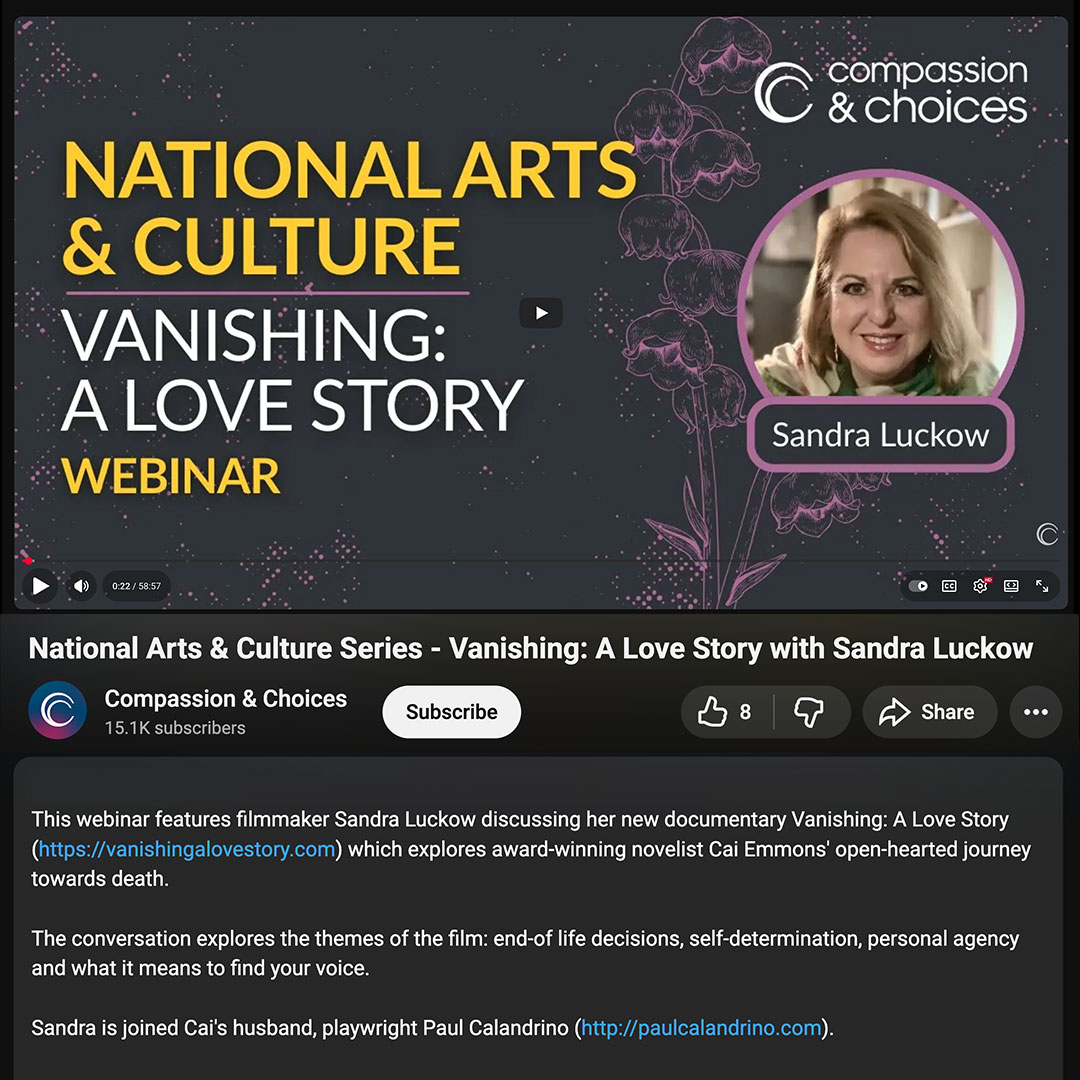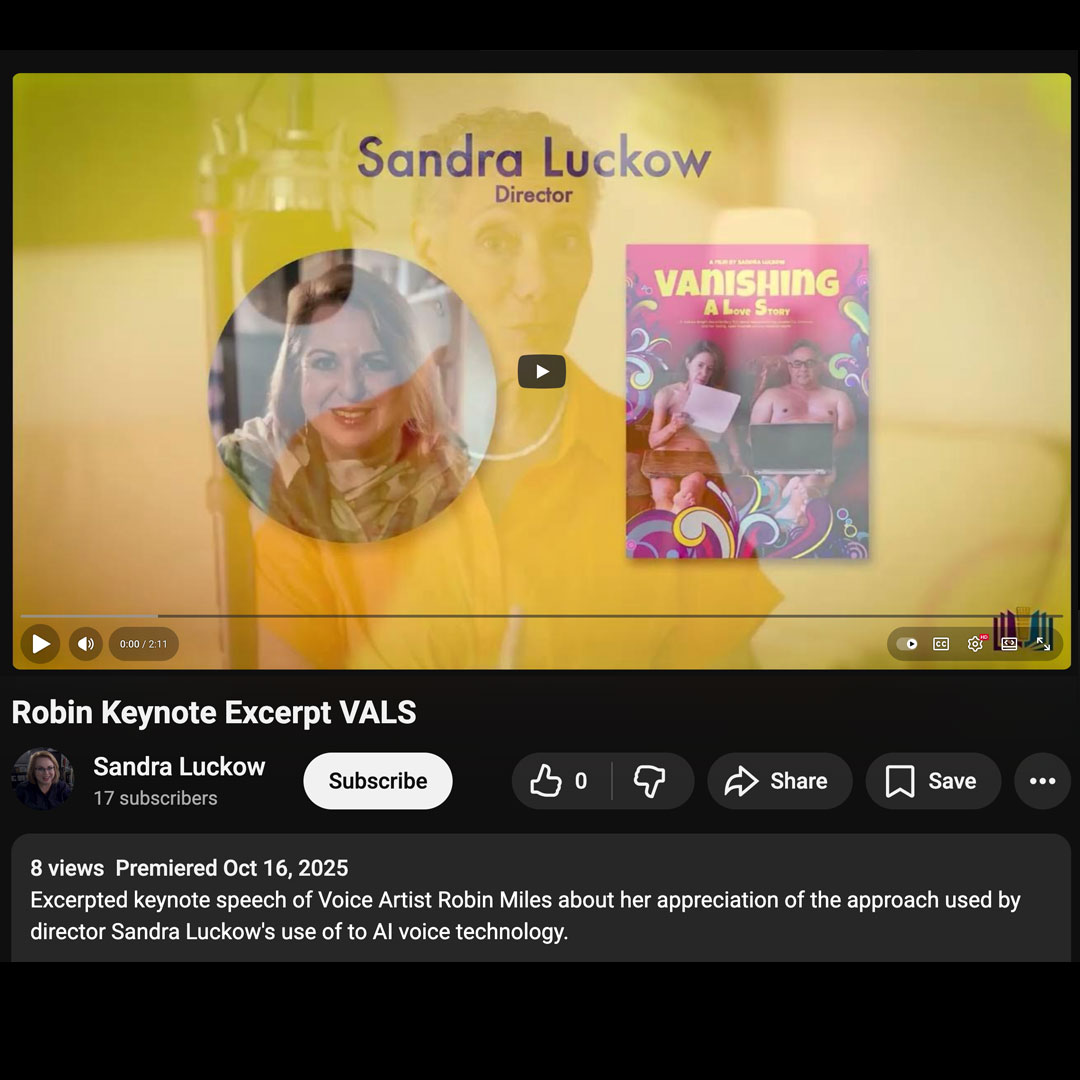
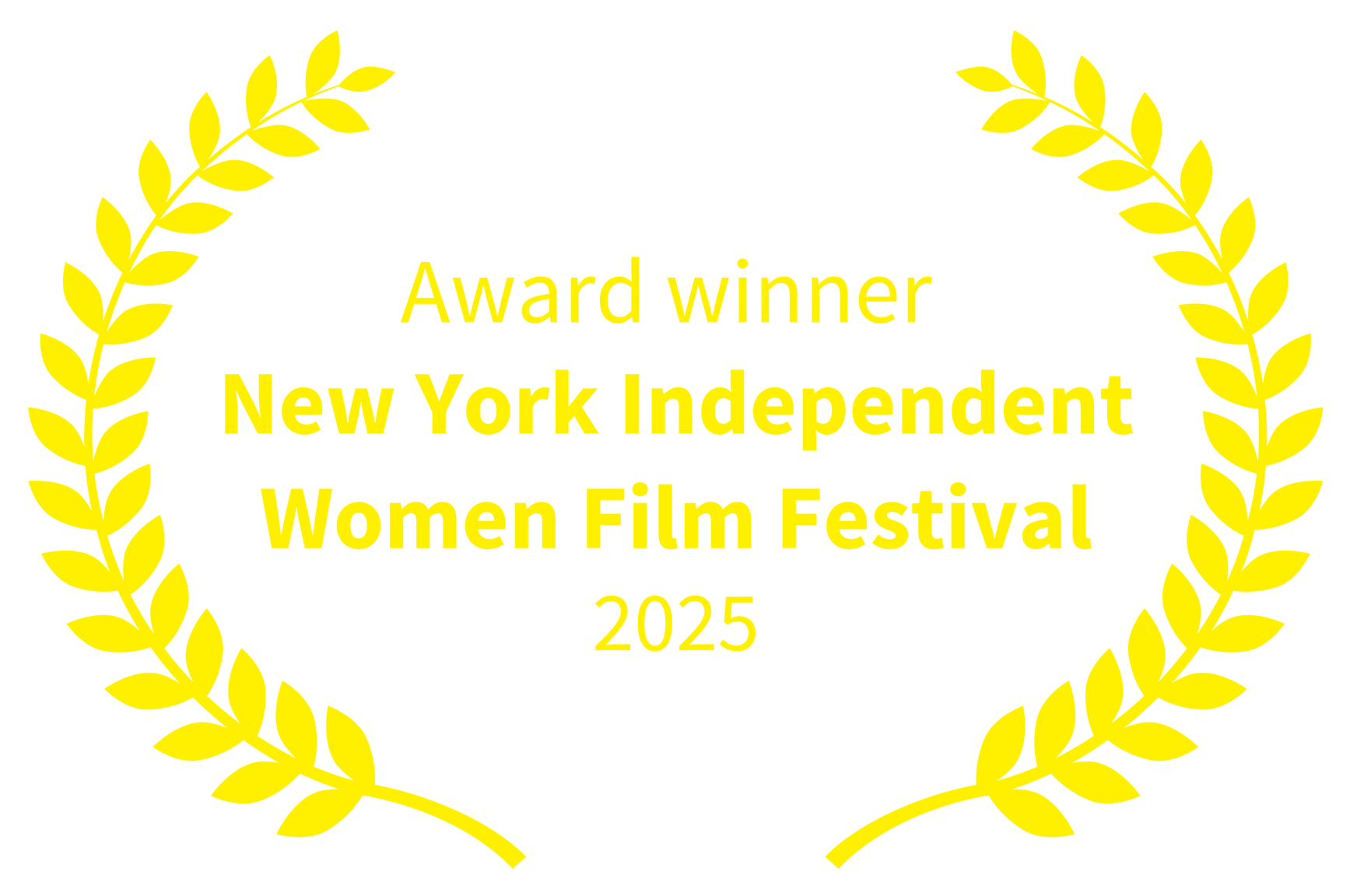


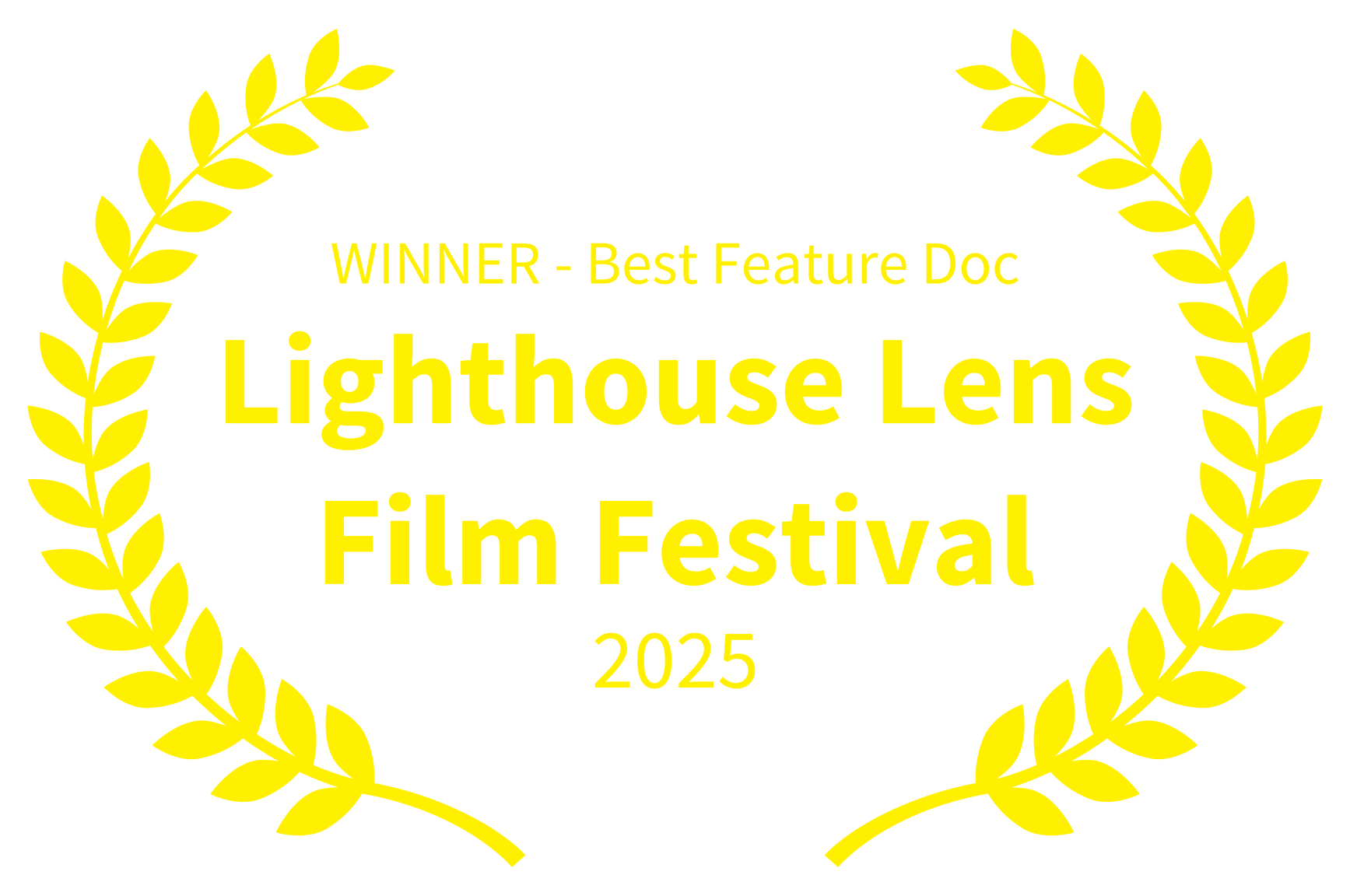

A Film By Sandra Luckow








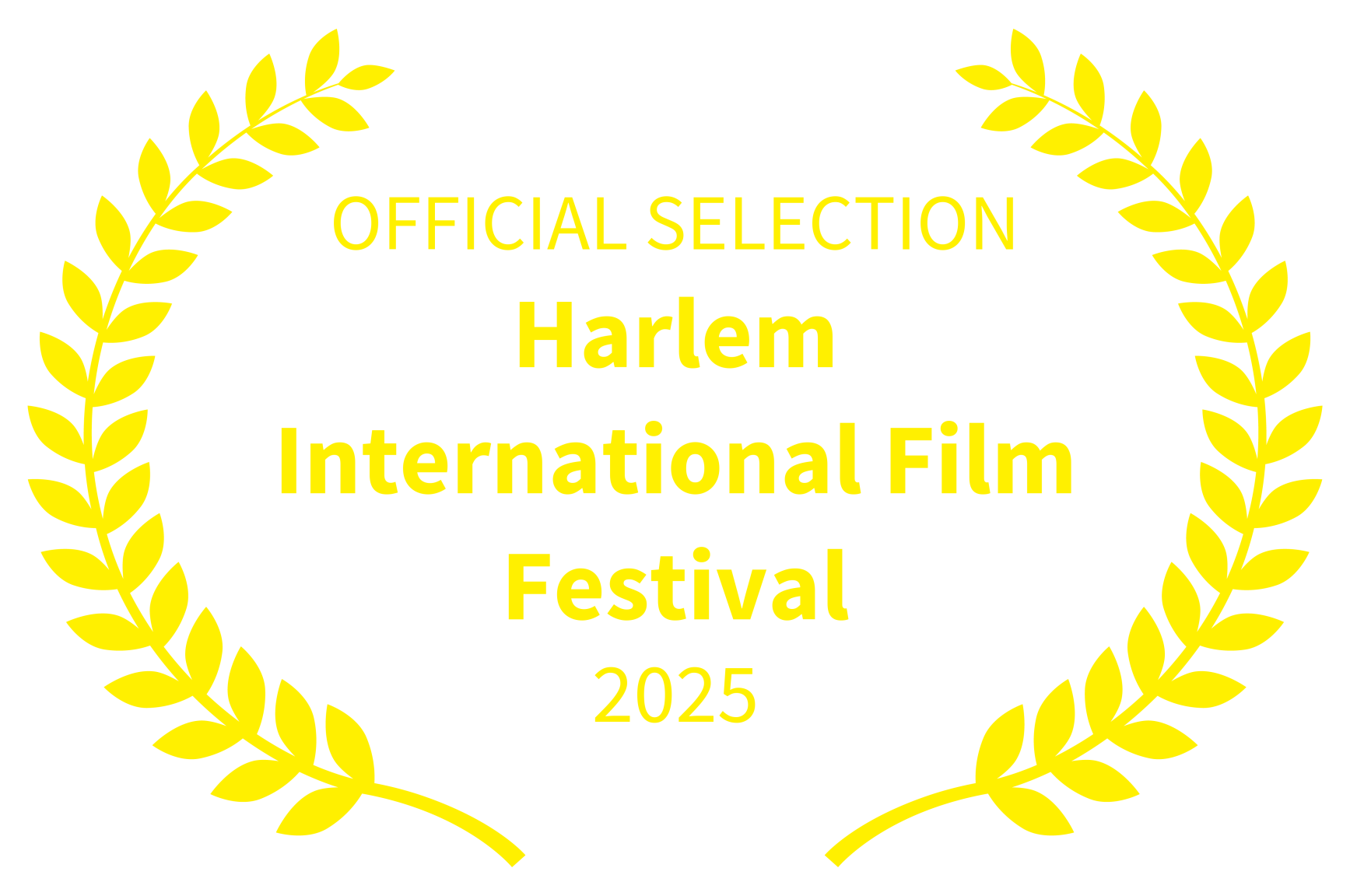
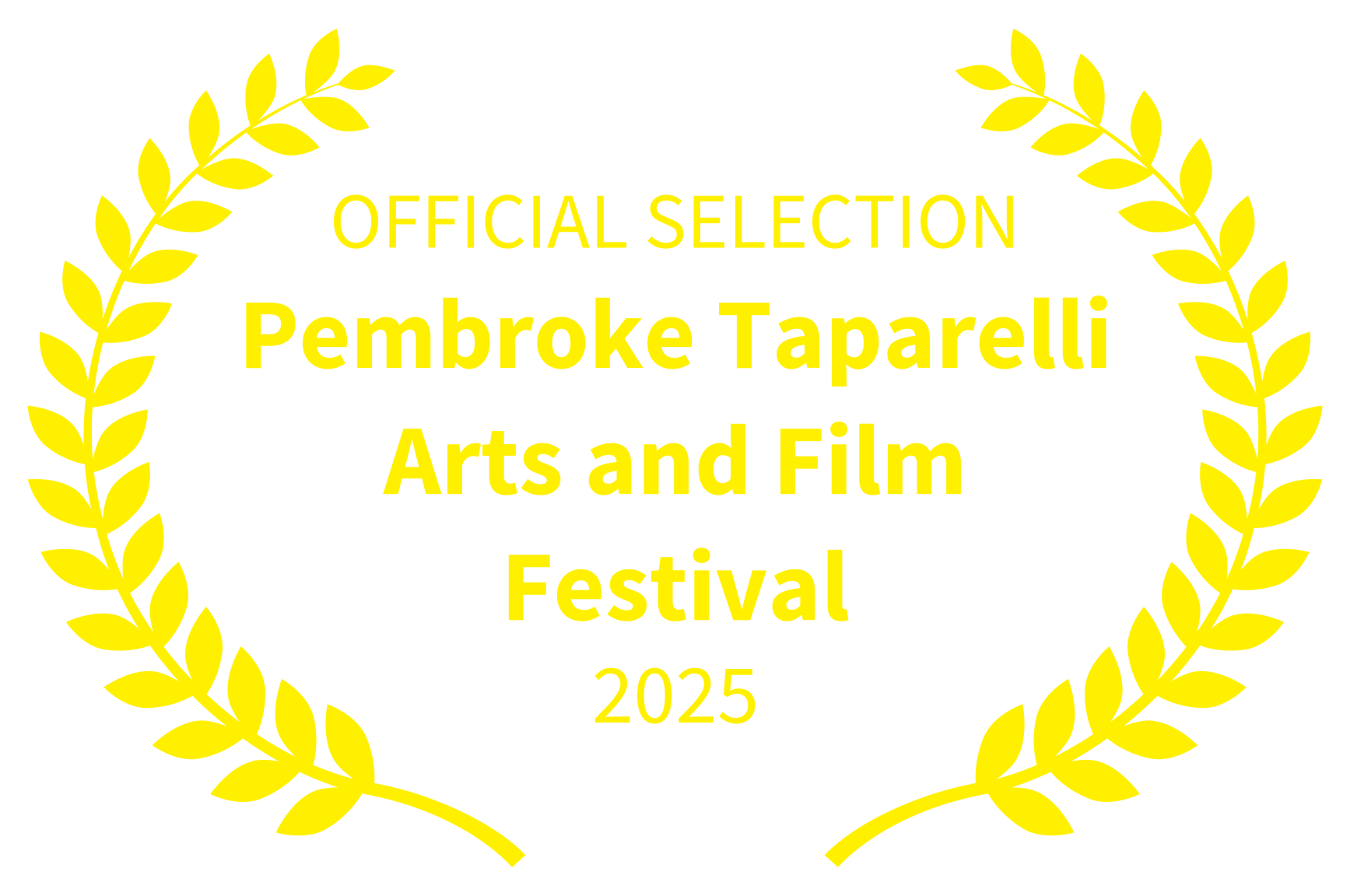
Screenings

BELIFF Be Epic Film Festival London
November 20th 2025
17:00 to 19:00
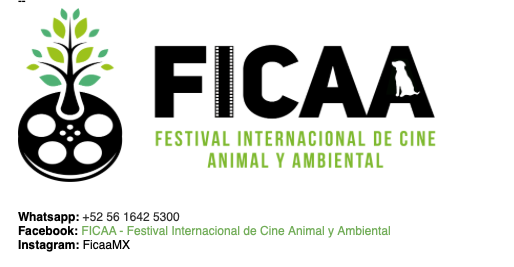
Mexico City
December 5
In Mexico City — December 5 more details to come


press
“Sandra Luckow’s Vanishing offers an almost shockingly close-up view of a life well lived and arguably well ended. Focused raptly on the late author Cai Emmons, the film is documented from so deep within her home and intimate circle that at times it also seems to have been shot from inside her head. Emmons is the intellectual driver of Vanishing—but it’s Luckow’s principled humility before her subject, and before the inescapable realities of illness and death, that enable this film to begin in voicelessness and dissolution and end in eloquent affirmation.“
–Stuart Klawans, National Magazine Award winner for Reviews and Criticism

about
A feature length documentary film about award-winning novelist Cai Emmons and her loving, open-hearted journey towards death.
Cai was diagnosed with ALS in 2021, at the age of 70. Vanishing: A Love Story takes place in 2022, during the last six-months of Cai’s life. The film is first and foremost about the agency of expression —having a voice to create a legacy in the world. End-of life decisions, self-determination and personal agency are the major topics and themes of the film, in a cultural climate that shies away from deep thought and discussion about them.
Early in February of 2021, after more than 6 months of persistent inquiry, Cai received a diagnosis of Bulbar-onset ALS (Amyotrophic Lateral Sclerosis better known as Lou Gerhig’s Disease). Bulbar-onset is more aggressive than limb- onset ALS, robbing its victims of physical speech capabilities and has a less-than two-years prognosis. In 2020, Cai noticed changes to her voice: her essential and beloved instrument that defined her. The loss of its dynamic and versatile lyricism and constant presence, isolated Cai. She came to use a text-to-voice device — the simulated voice used by Stephen Hawking — but it was frustrating in its limitations.
Ironically during this time, Cai experiences the greatest successes of her professional career. Five months after her diagnosis, she sold two of her novels to different publishers on the same day. When we first meet Cai in the film, the destination of her journey seems far away, even though we know the statistics. Her ALS feels chronic, even manageable, despite certain adaptations and challenges. And Cai approaches all the indignities of her illness with a detached curiosity, chatting with nurses and other patients about ports, lung capacity, muscle strength, tube feeding, tracheotomies and Death with Dignity. When, in the early summer of 2022, a news story breaks about a promising first-ever restorative ALS drug pending human trials, Cai is hopeful this film will document a person surviving ALS.
During this time, her husband Paul clears away everything unnecessary and “project manages” every aspect of their lives in hopes of making the most of their time together. He creates a space for Cai’s passionate need to continue writing, walking, kayaking, socializing, promoting her work and eating — long after it’s medically advised that she tube feed exclusively. He battles with insurance companies and acquires all the expensive and complicated equipment for Cai’s quality of life and survival. For a while it feels like it’s all working! When they go to the ALS Clinic at Oregon Health and Sciences in Portland once every three months, Dr. Chahin delights in telling them that there’s no significant weakening.
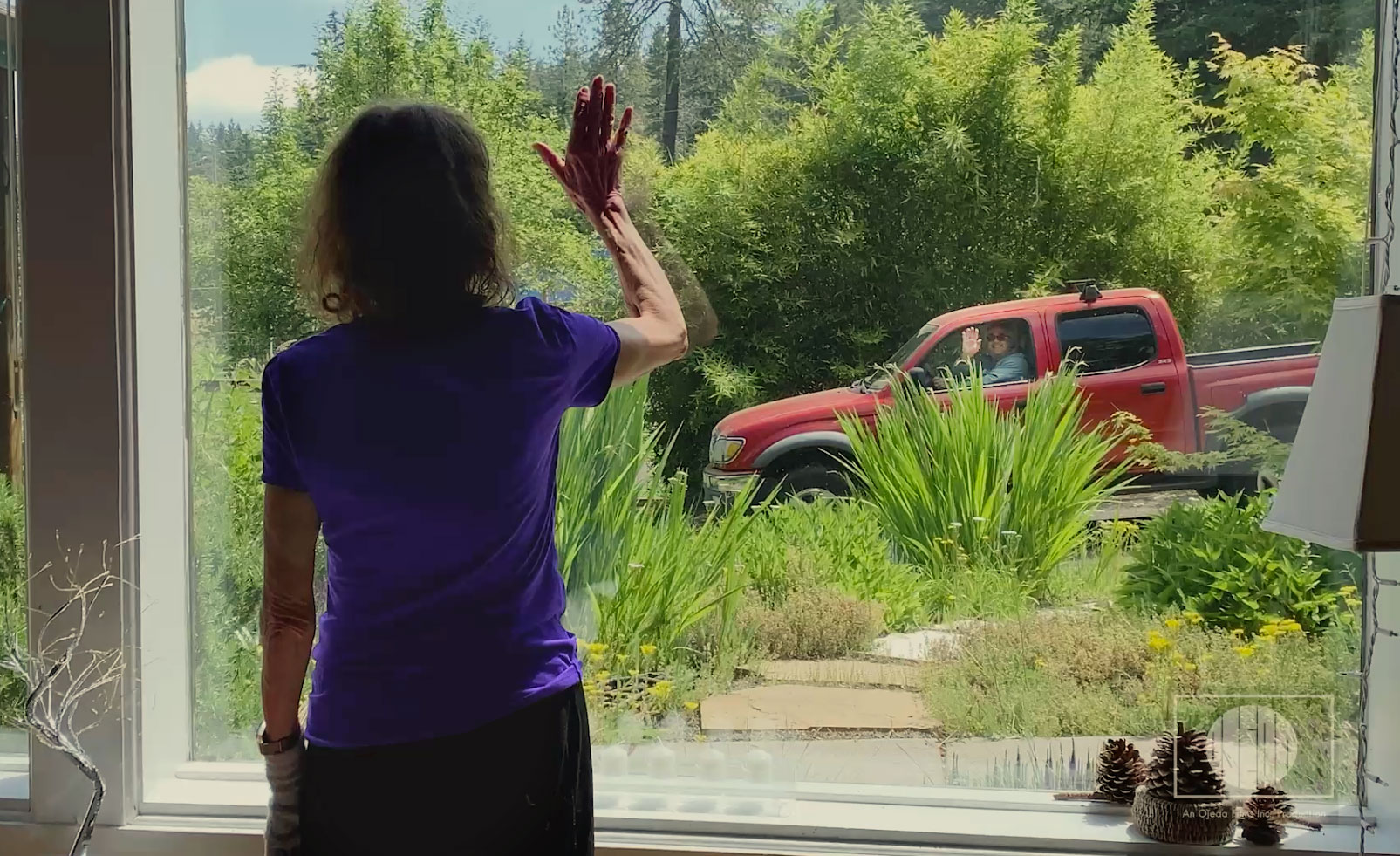
But shortly after a blow-out celebration for the publications of her books Unleashed and Livid, Cai begins a physical free-fall decline. She throws herself into preparing her friends and family for her death. She does a guided psilocybin trip hoping to gain emotional clarity. She researches the Death with Dignity requirements in Oregon. This brings up unexpected challenges for Cai. She must be able to self-administer, and she must have a terminal diagnosis that will lead to death within six months.
And yet the very nature of ALS could lead to a loss of physical capacity to self-administer long before a six-month prognosis. It’s in Cai’s nature to be the over-achieving star patient and she doesn’t fully disclose her sufferings to Dr. Chahin. Based on his data, he can’t give her a six-month prognosis. The film becomes a race against time to end her life with agency, and to win that race, Cai must fight against the impulse to curate her projected image.
The creative vision for the film allows the viewer access to Cai’s inner life; an inner life that’s imprisoned inside an ALS ravaged body; an inner life that is normally the province of fiction filmmaking. Together Cai and I researched AI voice-to-voice technology and she wanted me to use it as her “voice” in the film. While ALS had robbed her of her speaking voice, by using Cai’s own writing combined with this AI technology, the film will give Cai the last word on her own life.
Cai was excited about bringing the subject of death — the equalizer of all humanity — to the forefront. She wanted to de-stigmatize, and even normalize it, even though it was contrary to her New England, white, Anglo-Saxon, Protestant upbringing. She relished the paradoxical challenge of debating modern medicine’s inability to “save her” and its reluctance to help her die. She was determined her entire life, long before her ALS diagnosis, to create a lasting and meaningful legacy. In this way, the film itself is an extension of Cai’s life as an activist and writer.

support
A successful GoFundMe campaign and a grant from the New York Foundation for the Arts Women’s Fund allowed us to complete principle photography and begin post-production.
Now, we are fundraising to compete the film and we need your help.
Please consider making a tax-deductible contribution to the film through or fiscal sponsor The Film Collaborative. This link will take you to the film’s donation page and explains the different ways you can help.
Any amount is welcome and moves the film that much closer to the finish line!
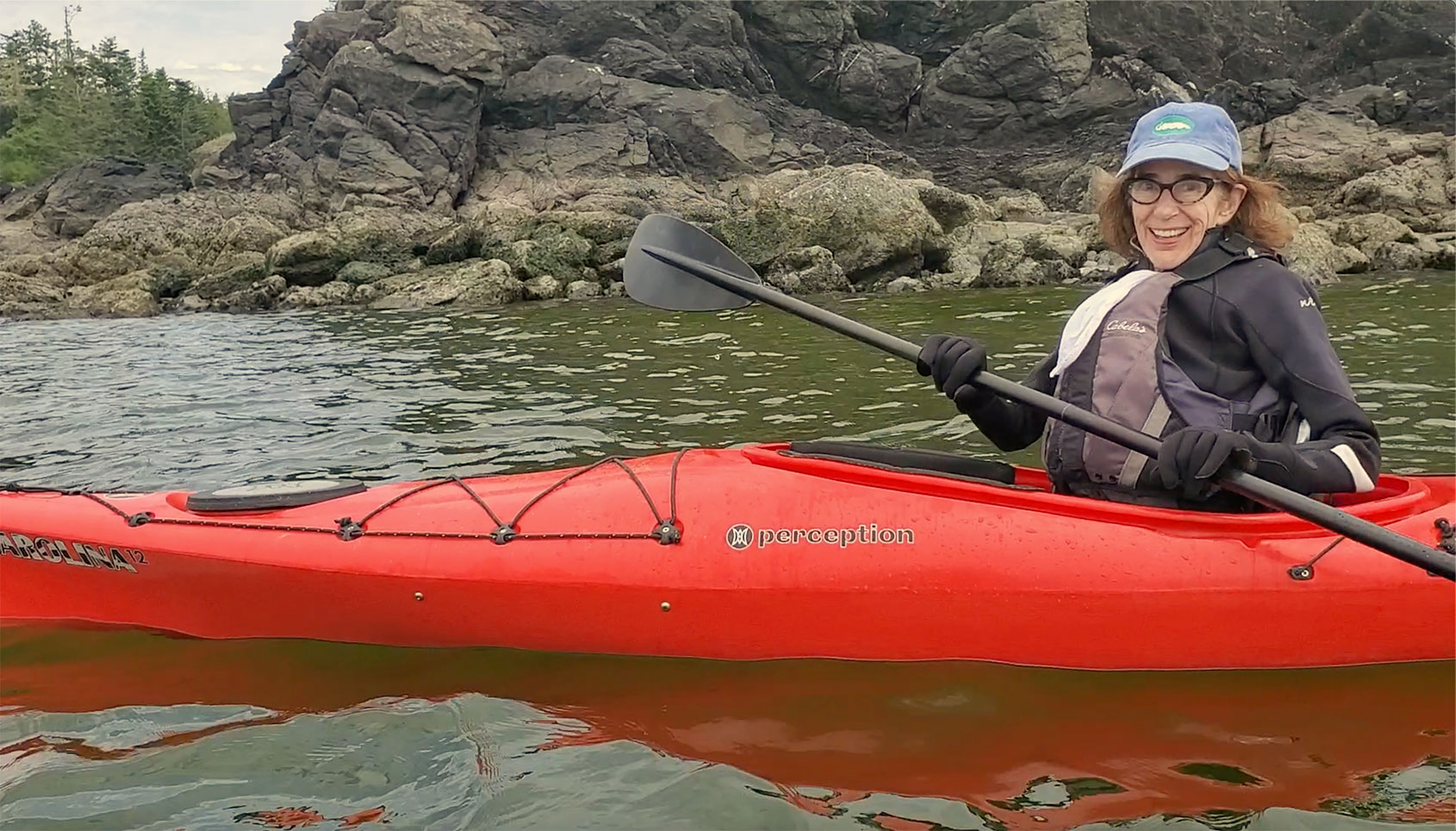

filmmaker
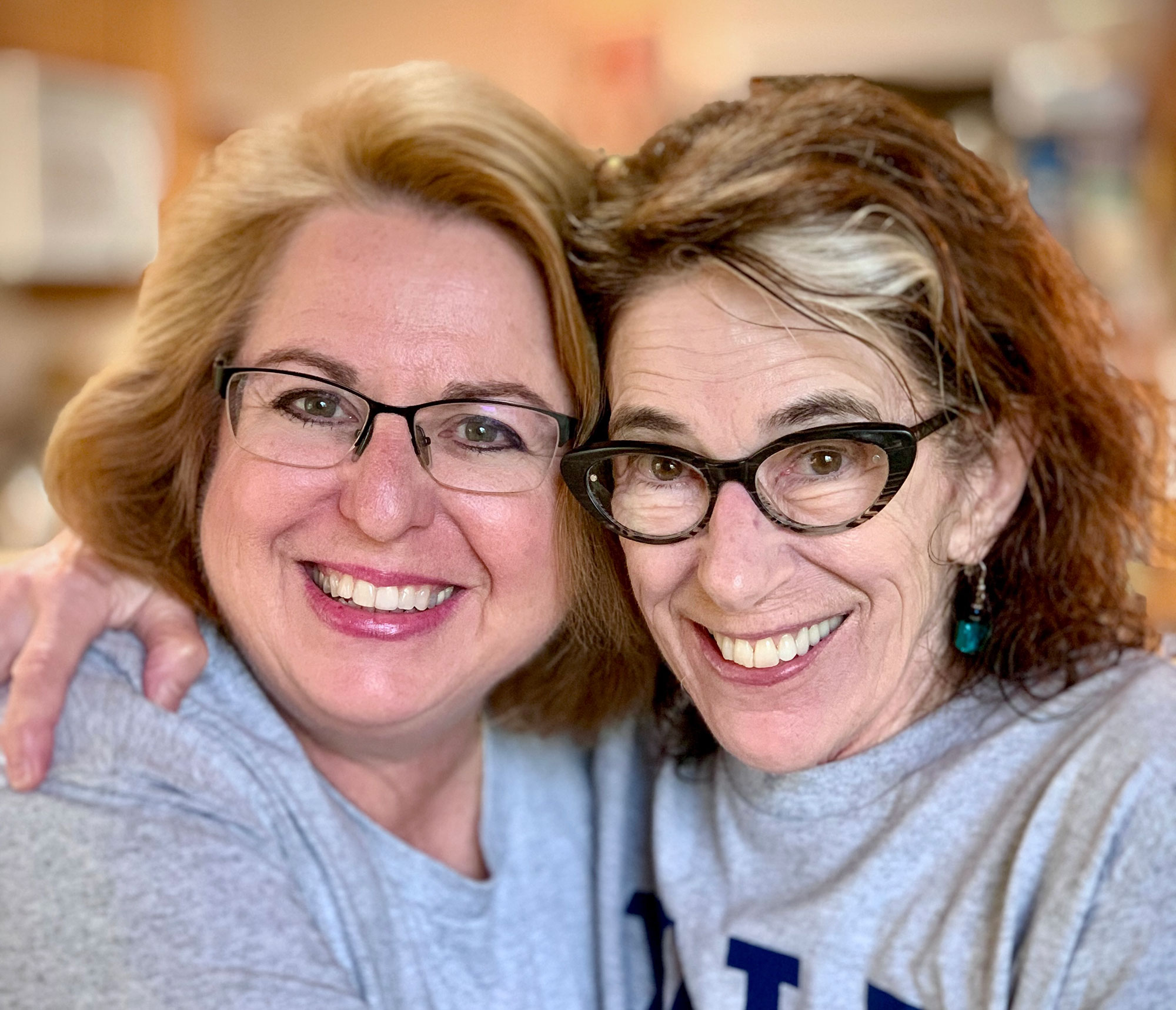
Sandra Luckow: Producer – Director
Fifteen months after her ALS diagnosis, we began communicating about Cai’s limited time left in the world; what she had left to communicate and what her legacy would be. We began talking about the possibilities and practicality of making a documentary of her experience. Cai, and her husband Paul, were completely onboard.
I make intimate documentary portraiture of extraordinary people who confront challenging circumstances, whether willingly or unwillingly. The result of this work is a glimpse into some unfettered truths about humanity. My creative practice began with, “Sharp Edges,” a documentary about a then 15-year-old unknown Tonya Harding going to her first national figure-skating competition with little more than unmatched, raw potential. And my most recent documentary, “That Way Madness Lies…” chronicled my brother’s unvarnished struggles with paranoid schizophrenia as well his family’s failure to get him meaningful help.
With all my films, I immersed and embedded myself into the lives of my subjects. My creative practice is to give my subjects as much agency over the nature of their image as possible. Vanishing: A Love Story is a continuation of that process on a much greater intensity level.
I met Cai ten months before she was diagnosed with ALS. We were alumnae from the first two decades of women at Yale University, and although years apart, we both received our MFAs at NYU’s Tisch School of the Arts in Filmmaking. Despite the cross-country distance and a raging pandemic, we had many lively one-on-one zoom conversations over cocktails — talking about life, politics, art, and, most adamantly, storytelling.
Cai took an active role in convincing healthcare professionals, family and friends to understand unflinchingly of her desire make a record of this process. Daily, there were ongoing consent and transparency checks and Cai was adamant in her conviction to give me access to her life.
I promised Cai to film her “Death with Dignity” which she needed to schedule before ALS robbed her of her ability to self-administer. And now, as I move into post-production using AI technology to create her posthumous narration (with not only her permission, but also her directive), I am challenged with my sense of obligation to “get it right” while having to bring a small army of collaborators and resources into the process.
My vision of success for this film will be a recognition of Cai, in all her complexity, by her family, friends and fans of her writing. Success will mean that I do not shy away from the ravages of ALS, the controversy of her psilocybin explorations, her unwitting ambivalence about dying juxtaposed with her determination to take a lethal injection. This film, ultimately, will be the illumination of Cai Emmons’ humanity and an authentic legacy.
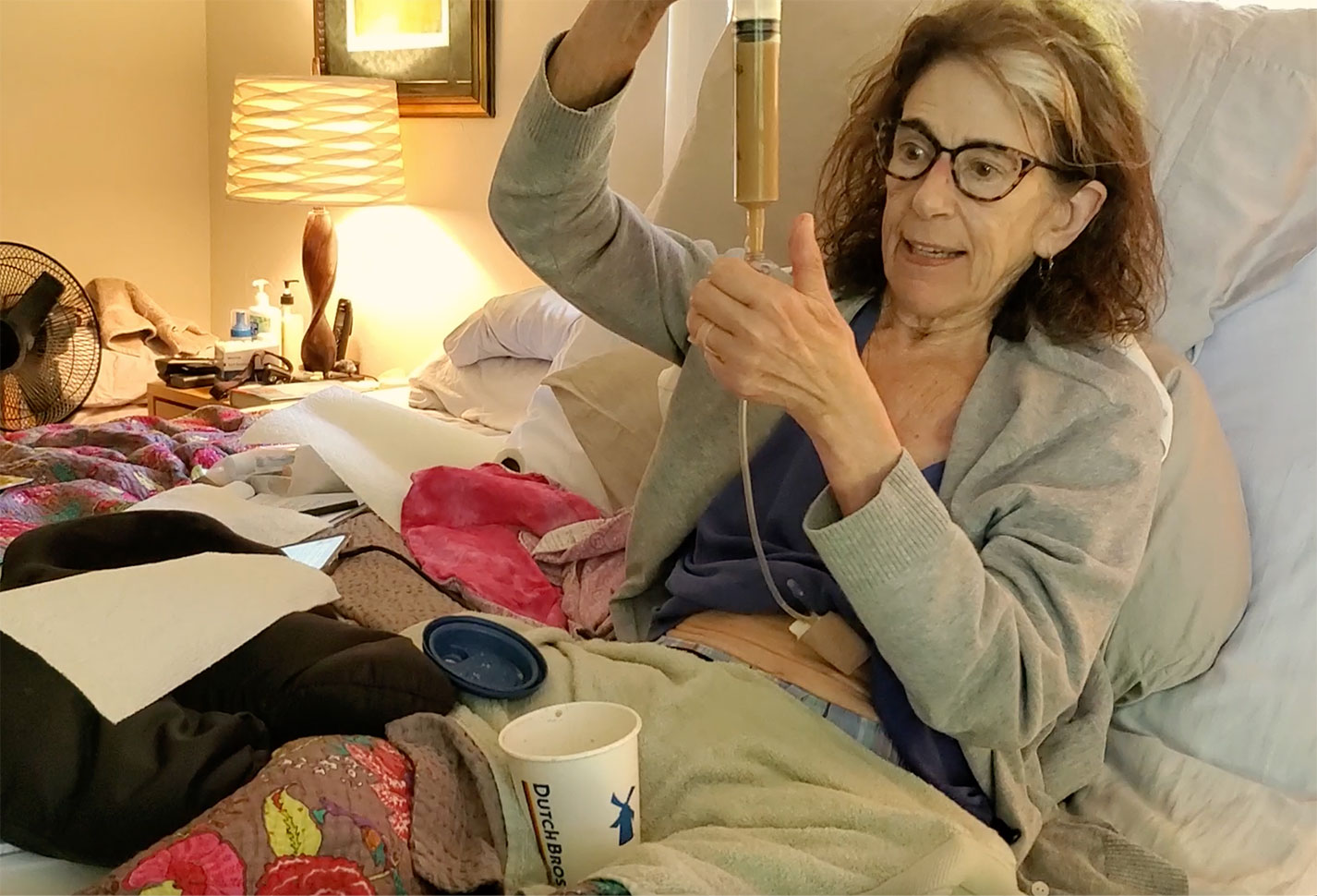

team
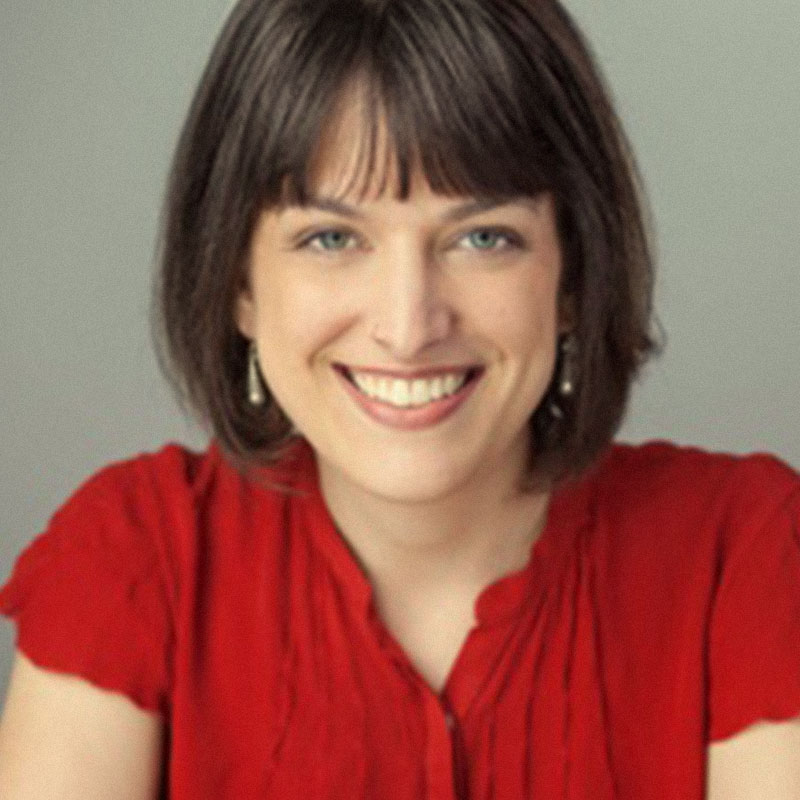
Kat Vecchio: Producer
I connected with Sandra a number of years ago when Fork Films supported her film “That Way Madness Lies…” I was impressed with Sandra’s nuanced and empathetic storytelling, she was able to approach a difficult topic – severe mental illness, it’s effects on the person, their family and community, and the egregious lack of support in our society for people facing this struggle – with both compassion and directness. When she shared that she was making this film about Cai Emmons I was immediately intrigued.
For many years at Fork Films I ran the company’s documentary film grants fund, and most recently worked at the company as the Chief Creative Officer. Now, I have joined The Video Consortium as their manager of Creative Development, creating workshops and mentorship opportunities for documentary filmmakers and video journalists. I’ve also begun working as a freelance producer.
I’ve been very deliberate in the projects and partners I have sought out, with the goal of connecting with filmmakers who are telling meaningful stories in unique ways. I think Sandra’s, and Cai’s vision for what this film will be is compelling and original. I’m excited to be a meaningful part of bringing that to fruition.
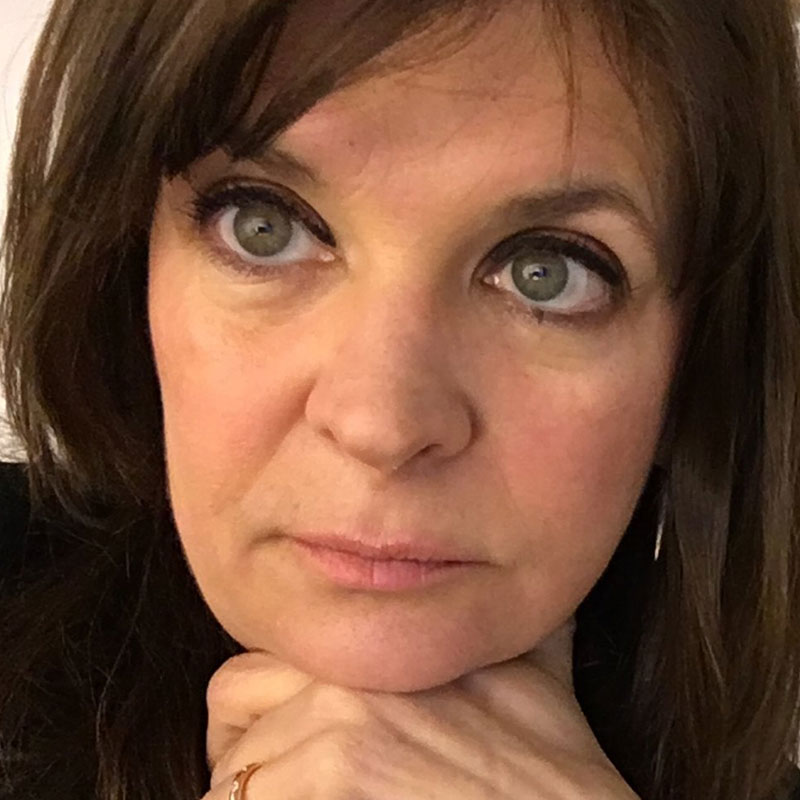
Ann Collins: Story Consultant
I met Sandra early in our careers and had the pleasure of working with her on Belly Talkers. We have remained friends and have consulted with each other on the many projects we’ve done since then. Sandra has a wonderful sense of emotional arcs and storytelling, and her keen wit and incisive analysis of themes adds to what she accomplished on screen. When she spoke to me about Cai’s story, I knew immediately that she had found something very special to document.
Since editing Belly Talkers, I have worked on Griffin Dunne’s documentary, Joan Didion: The Center Will Not Hold and on the cinema verité documentary Swim Team. Some recent projects I have worked on include the Netflix series The Pharmacist and the independent documentary Can You Bring It: Bill T. Jones and D-Man in the Waters.
I have also kept busy teaching editing classes at the School of Visual Arts in the MFA in Social Documentary, the MFA in Photography, Video and Related Media, and the BFA in Film. I worked extensively as a story consultant and consulting editor on numerous independent documentaries.
Because my schedule is so full, I only choose to work on projects that I am certain will be successful and, more importantly, will have a significant and positive social impact. This story will bring compassion and understanding to end of life decisions made by those who chose dignity over suffering. I am excited and honored to be part of this team.

Quentin Chiappetta: Composer
I met Sandra when we were put together by a mutual friend to create some short promotional videos for the Morris Museum in New Jersey. I was thrilled and flattered when she reached out to collaborate on her new project Vanishing: A Love Story. It has been a pleasure to immerse myself in the emotional rollercoaster of building the soundtrack for this film.
I have been creating original music and sound design for a broad range of projects for nearly 30 years. I have written original music for theater; scored, designed and mixed independent films, documentaries and TV shows; and created immersive soundscapes for museums. Most recently I created and installed the multi-channel soundscape that covers the entire Entertainment Nation permanent exhibition at the Smithsonian Museum of American History. I’m also the sound designer and mixer for Christian Marclay’s 24-hour masterpiece “The Clock”.
One of my favorite things about the work I do is that it gives me the chance to collaborate with and become friends with brilliant, creative people. When a team like this is gathered together to make something, the result will invariably be much more than its parts.

Yasmin Mistry: Animator
I was introduced to Sandra through her producer, Kat Vecchio. I joined the team because of Sandra’s intentional desire to use animation to tell Cai Emmons’ story. Animation offered a way to bring Cai’s experiences to life after ALS had taken her voice, and to fulfill her final wish. I felt honored to contribute my skills to such a meaningful project.
As an Emmy-nominated animator, I blend creative mediums to tell character-driven stories through an intimate lens. My most recent project, a mixed media documentary series about family separation, has screened globally, with the latest story currently airing on PBS.
I’m excited to bring my experience in animation and storytelling to Sandra’s project, helping to create a unique and impactful film that honors Cai’s life and memory.
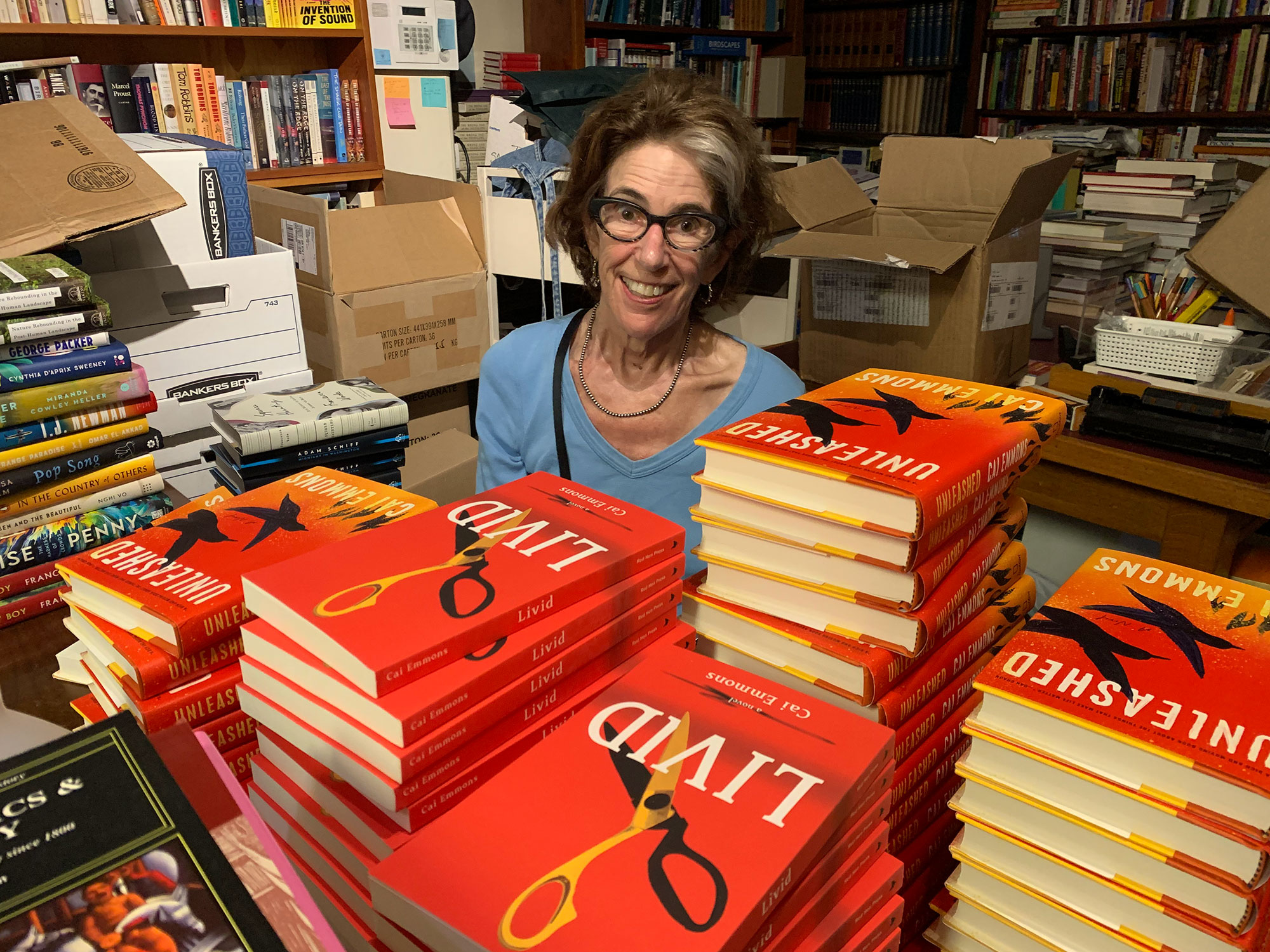

contact
Sandra Luckow
Please consider making a tax-deductible contribution to the film through or fiscal sponsor The Film Collaborative. Any amount is welcome and moves the film that much closer to the finish line!
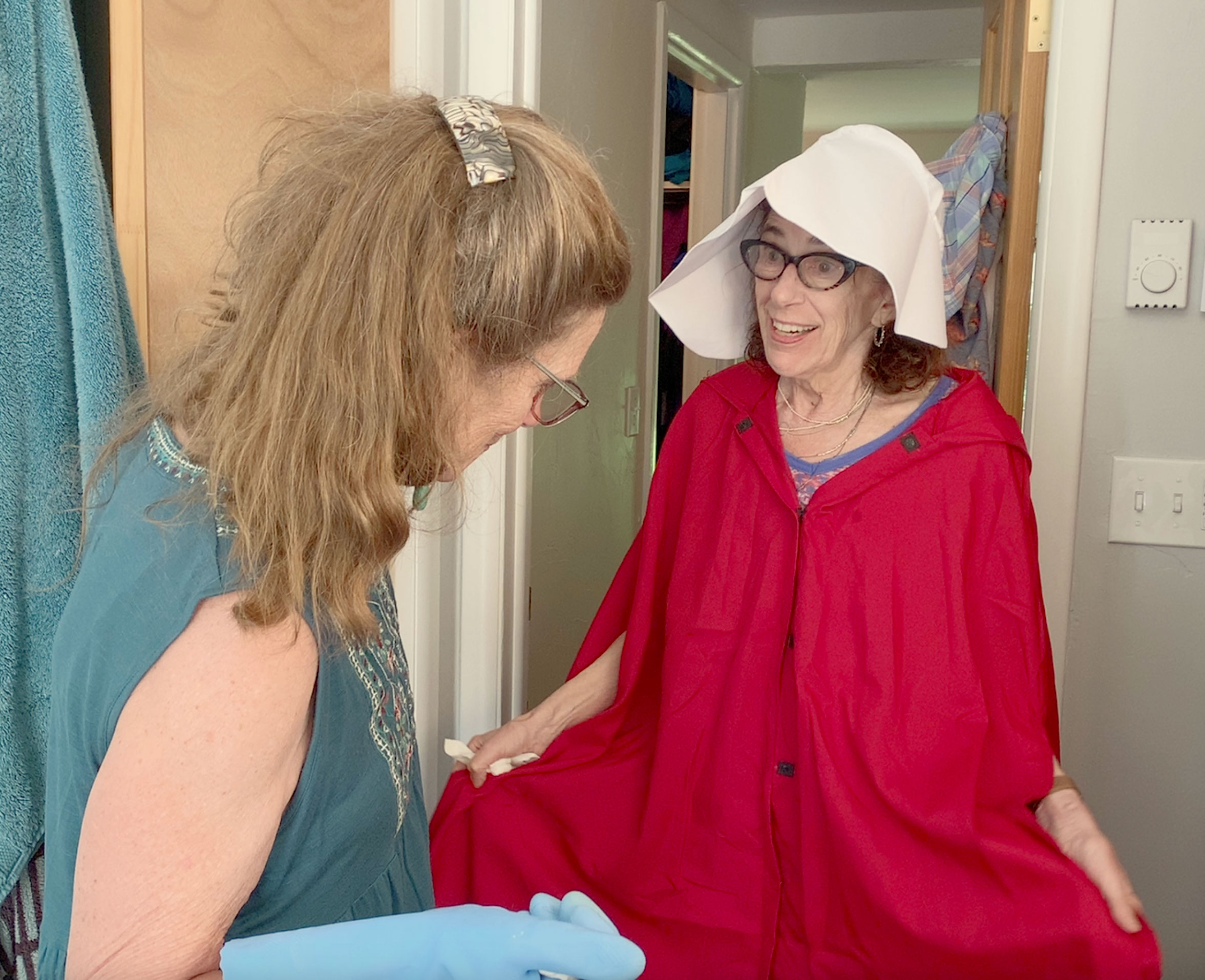

photos












